
Sofie Bates was the Fall 2019 science writing intern at Science News. She holds a degree in genetics from the University of California, Davis, as well as a master’s in science communication from the University of California, Santa Cruz. Her writing has appeared in Science, Mongabay, Inside Science, and The Mercury News. As a science videographer, she has filmed and edited videos for Inside Science and The Mercury News.

Trustworthy journalism comes at a price.
Scientists and journalists share a core belief in questioning, observing and verifying to reach the truth. Science News reports on crucial research and discovery across science disciplines. We need your financial support to make it happen – every contribution makes a difference.
All Stories by Sofie Bates
-
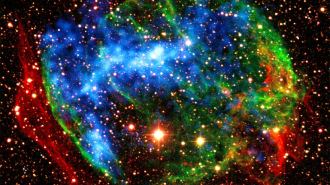 Space
Space50 years ago, scientists didn’t know where heavy elements came from
Five decades ago, scientists suspected ordinary supernovas created heavy elements. Now we know they don’t, but merging neutron stars do.
-
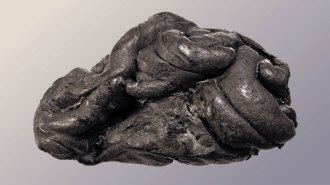 Archaeology
ArchaeologyDNA from 5,700-year-old ‘gum’ shows what one ancient woman may have looked like
From chewed birch pitch, scientists recovered DNA from an ancient woman and her mouth microbes and hazelnut and duck DNA from a meal she’d consumed.
-
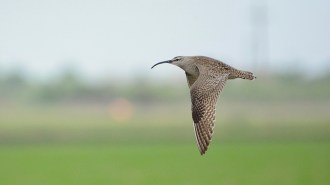 Earth
EarthClimate change may be why birds are migrating earlier across the United States
Birds are migrating earlier in recent decades in the United States, which could disrupt feeding or nesting cycles.
-
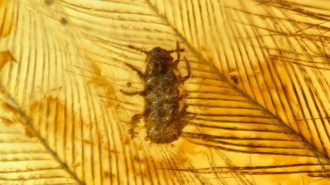 Paleontology
PaleontologyLicelike insects munched on dinosaur feathers around 100 million years ago
Fossils in amber push the origin of feather-feeding insects back over 50 million years, a study finds.
-
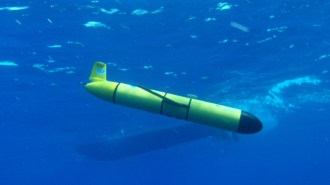 Oceans
OceansStealthy robots with microphones could improve maps of ocean noise
Recordings from underwater microphones on stealthy robotic gliders could create a better “soundscape” of noises throughout the ocean, researchers say.
-
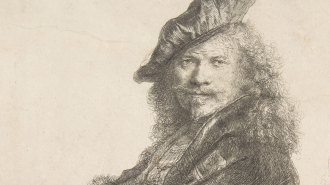 Science & Society
Science & SocietyWhy Rembrandt and da Vinci may have painted themselves with skewed eyes
A strongly dominant eye, not an eye disorder, may explain why some great artists painted themselves with one eye turned outward.
-
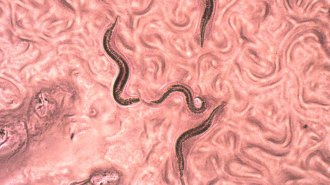 Animals
AnimalsDevil worm genes hold clues for how some animals survive extreme heat
Devil worms have many extra copies of genes tied to heat stress and cell death, which may help the critters survive deep underground, a study finds.
-
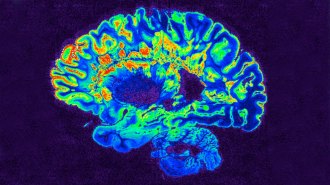 Health & Medicine
Health & MedicineA protein helps disease-causing immune cells invade MS patients’ brains
Blocking the protein may hinder B cells invading the brain in multiple sclerosis, a study in mice and ‘stand-in’ human brain barriers finds.
-
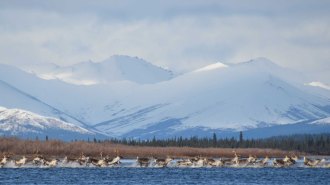 Life
LifeCaribou migrate farther than any other known land animal
Caribou in Alaska and Canada migrate up to 1,350 kilometers round trip each year, a study reports.
-
 Neuroscience
NeurosciencePeople who lack olfactory bulbs shouldn’t be able to smell. But some women can
Some women who appear to lack the brain structures that relay scent messages still have an average sense of smell, and scientists have no idea how.
-
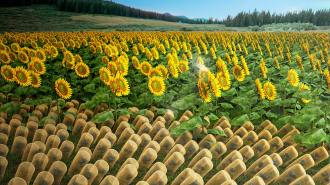 Tech
TechThe first artificial material that follows sunlight may upgrade solar panels
Rows of tiny stemlike rods called SunBOTs orient themselves toward light, optimizing the solar energy that they can harvest.
-
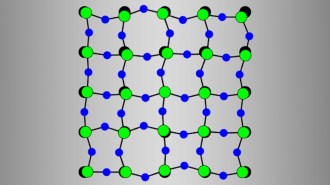 Chemistry
ChemistryMolecular jiggling may explain why some solids shrink when heated
Scientists may have figured out how scandium fluoride crystals shrink as temperature rises, possibly leading to new insights into superconductors.